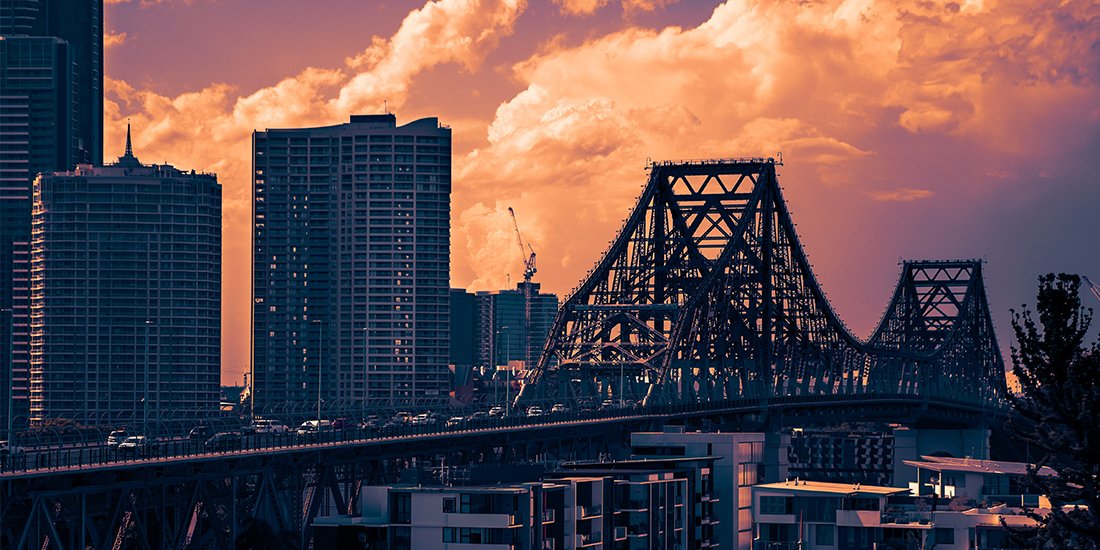
Dissecting SCOMO – helping you understand what closures, rules and announcements actually apply to Queensland now
On the evening of Sunday March 29, Prime Minister Scott Morrison addressed the nation to outline further (tougher) restrictions to help curb the spread of coronavirus. The new rules cut any social gatherings to just two people – this applies for indoor and outdoor gatherings, as well as those on private properties. All people over the age of 70, those over 60 with a chronic illness and Indigenous people over 50 are all strongly advised to stay home. These new measures are in addition to the closures and announcements that have already been placed over the last two weeks. We’ll keep updating as more announcements come to light but here’s what you need to know now …
Banned or closed
Pubs, registered and licensed clubs and licensed premises in hotels
Casinos and gambling venues
Nightclubs
Cinemas
Concert venues and stadiums
Brothels, massage parlours and sex-on-premises services
Community centres and halls
Libraries
Galleries
Museums
Beauty salons
Tattoo parlours
Swimming pools and saunas
Indoor exercise facilities including gyms, pilates and barre studios
Religious gatherings and indoor places of worship
Social-based sporting activities
Indoor and outdoor play centres and playgrounds
Arcades
Amusement parks
Skateparks
Auctions and open houses
Shopping centre food courts (with the exception of takeaway)
Birthday parties, house parties and family get-togethers
International travel for Australians is banned
Restricted
Weddings will be restricted to only five people (so that’s the couple, the celebrant and two witnesses)
Funerals will be restricted to ten mourners
Outdoor boot camps are now restricted to two people – so essentially a personal training session
Hairdressers and barbers must adhere to a strict four-square-metres-per-person rule to manage social distancing
Restaurants, cafes and food-court outlets may still operated as strictly takeaway only
Home visits on private properties are restricted to those who live in the house, plus only one other
Remaining open
Shopping centres
Medical centres
Pharmacies
Food markets will operate at the state’s discretion
Bottle shops
Schools
When it comes to schools, things are a little less clear cut. The advice from the Federal Government continues to be that schools are safe and will remain open until the end of term (which varies between states) but has advised there may be some pupil-free days to give teachers time to transition to distance learning. After the term break (which SCOMO stressed will not be a holiday at all), at this stage schools will reopen as scheduled with the view to offer a mix of in-class learning as well as distance learning. That said, some states in Australia have opted to implement their own tougher restrictions:
Queensland: Schools are student-free from Monday March 30, except for the children of essential workers (including supermarket staff). This period will allow teachers to receive training in distance learning and online resources.
New South Wales: Schools remain open however parents have been advised to keep children at home unless they need to work.
Victoria: Schools are closed for the holidays. Due to reopen on April 13.
ACT: Schools are pupil-free until the end of term but students who need to attend, such as those whose parents must attend work and are unable to work from home, vulnerable children and those with additional needs, can. No child will be turned away.
ACT: Schools remain open however it is up to the parents whether to send their children to school. The school term concludes on April 9.
Tasmania: Schools will break early for holidays on Friday April 3 and will shift to distance learning for term two, however children of essential workers will still be welcome.
NT: Parents can choose to keep children at home and schools will be pupil free from April 6–9 ahead of the holidays to allow teachers to prepare for distance learning.
SA: Pupil-free days have been announced for the week leading up to Good Friday on April 10 and term two classes will be moved to online learning. Parents encouraged to keep children home if they can.
WA: Schools remain open but laws relaxed so it’s not compulsory – the premier has asked parents to keep children home if they can.
Beaches
There are no outright bans however people are advised not to go. Some beaches around the country have been closed.
Hotels, hostels and caravan parks
Hotels, hostels, bed and breakfasts, campsites, caravan parks, and boarding houses will be a decision for each state and territory.
Interstate travel
Queensland’s interstate travel ban came into effect at midnight on Wednesday March 25. The state’s border will only remain open to freight and essential travel, however the finer details and logistics are still being determined so watch this space. Western Australia, South Australia, Tasmania and Northern Territory have all effectively closed state borders as well (exemptions apply for essential services and workers), and now require all visitors to isolate for 14 days upon arrival.
International travel
Overseas travel is banned, however there are some exceptions for compassionate travel or aid workers. All overseas arrivals will be subject to compulsory monitored quarantine in hotels or elsewhere, at public expense. Health checks will be issued on arrival.
So, can I go outside at all?
Short answer – yes, you can. But it should only be for short periods of time, for essential reasons, whilst practising social distancing and with only one other person. For example – you can still go to the supermarket or local store to grab some provisions (because we know you’re not silly hoarders). You can still go for a walk outside to get some fresh air and your nature fix, just stay minimum 1.5 m away from anyone else and practice good hand hygiene. You can still exercise outdoors, just only with one other person. You can still go to your favourite cafe or restaurant to pick up a takeaway coffee or meal, just don’t hang around and chat, remember to wash or sanitise your hands, and don’t use cash. You can go outside if you still need to travel to work or school/study, or for medical care and compassionate needs. Remember, this isn’t just for your personal safety – by staying inside as much as possible you are drastically reducing the risk of someone who is elderly or immunocompromised contracting the virus, which could potentially be fatal for them. By staying inside, you are saving lives.
But wait, there are more than two people in my house!
That’s fine! You don’t have to kick two people out. The two-person limit does not apply to people in your household. So if you have a family of four, all living under one roof, then you can all go out together to take the dog for a walk. But if you and a friend want to go for a walk, that’s just two. Also, a family split across two houses are allowed to meet, so you can go visit your parents or siblings, however use your common sense – it’s advised you don’t go visit your elderly parents or grandparents if you can avoid it, but you can wave and chat to them from a distance in the front yard!
Could I be fined?
Yes, for not complying to the rules and restrictions. Queensland Police has been grated the power to enforce social distancing rules, now conducting around-the-clock compliance checks on Queenslanders in self quarantine. Officers have the option of issuing infringement notices on the spot in appropriate circumstances where social distancing and health guidelines aren’t adhered to – individuals can be fined $1334.50, while businesses will face $6672.50 fines. Police also have the authority to break up gatherings of more than two people, as well as issue fines if more than ten people are in one home (unless they all reside there).
We’ll be sure to update you on any more announcements made in regards to the ongoing fight against coronavirus but for an up-to-date snapshot, take a peek at our Quick Quarantine Updates.
The Stumble Guide is our comprehensive Brisbane dining guide with more than 2400 places to eat, drink, shop and play.
